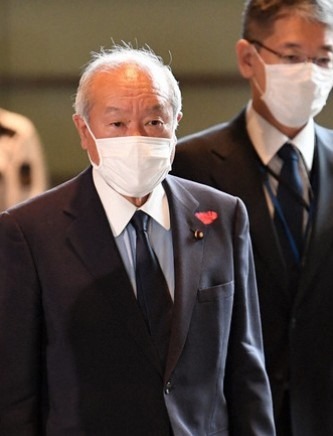A Closer Look at Japan’s Currency Intervention
Minister Suzuki’s Stance
Japan’s finance minister, Suzuki, recently made headlines by stating that he won’t comment on forex levels. He emphasized the importance of currencies moving in a stable manner and mentioned that he is closely watching FX moves with a high sense of urgency. When asked about currency intervention, he made no comment, leaving investors and analysts speculating about the government’s potential actions in the forex market.
The Significance of No Comment
By not commenting on currency intervention, Minister Suzuki is keeping his options open. Currency intervention involves buying or selling a country’s currency in the foreign exchange market to influence its value. This can impact export competitiveness, inflation levels, and overall economic stability. By remaining silent on the issue, the Japanese government can maintain flexibility in responding to any volatility or imbalance in the currency markets.
Currency intervention is a tool that policymakers use to address currency fluctuations that may harm the country’s economy. It can be a controversial tactic, as some argue that it distorts market forces and can lead to retaliatory measures from trading partners. However, in certain situations, intervention can be necessary to prevent excessive volatility or speculation in the currency markets.
The lack of a clear statement on currency intervention from Minister Suzuki could indicate that the Japanese government is carefully assessing the situation and considering all available options. This uncertainty may lead to increased volatility in the yen’s value against other currencies, as market participants adjust their positions based on expectations of potential government intervention.
How This Affects You
As a consumer or investor, fluctuations in currency values can have a direct impact on your purchasing power and investment returns. If the Japanese government intervenes in the currency markets to weaken the yen, it could make Japanese exports more competitive internationally. This may benefit Japanese companies that rely on overseas sales, potentially boosting their stock prices and profitability. However, a weaker yen could also lead to higher import costs, resulting in price increases for imported goods and possibly impacting your cost of living.
How This Affects the World
Japan is a major player in the global economy, and any actions taken by its government can have ripple effects around the world. Currency intervention by Japan could trigger responses from other countries looking to protect their own exports and trade balances. This could escalate tensions in international trade and potentially lead to a currency war, where countries compete to devalue their currencies to gain a competitive advantage. Such currency devaluations can create uncertainty and volatility in financial markets, impacting investors, businesses, and consumers worldwide.
Conclusion
Minister Suzuki’s decision not to comment on currency intervention reflects the complexity and importance of managing currency fluctuations in a globalized economy. The potential for government intervention in the forex market raises questions about the balance between market forces and policy interventions in maintaining economic stability. As the situation continues to unfold, it is crucial for investors and policymakers to closely monitor developments in the currency markets and be prepared for potential impacts on financial and economic conditions.





